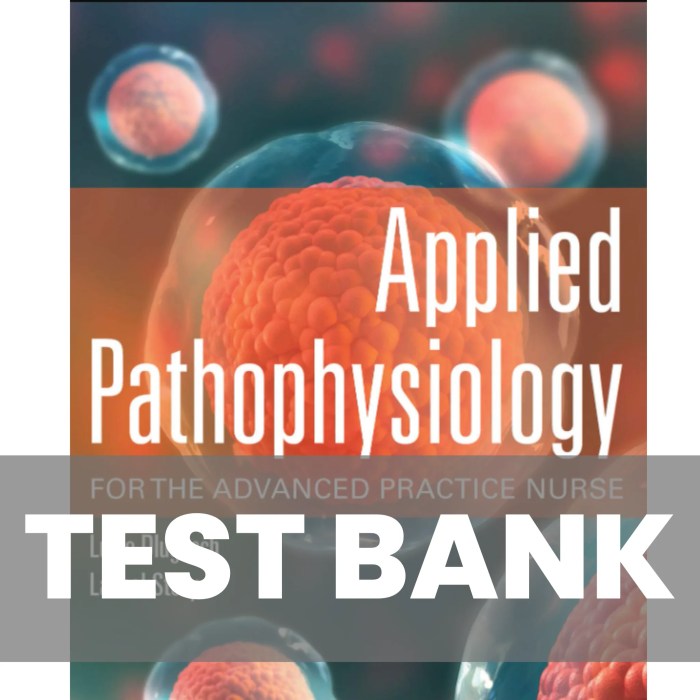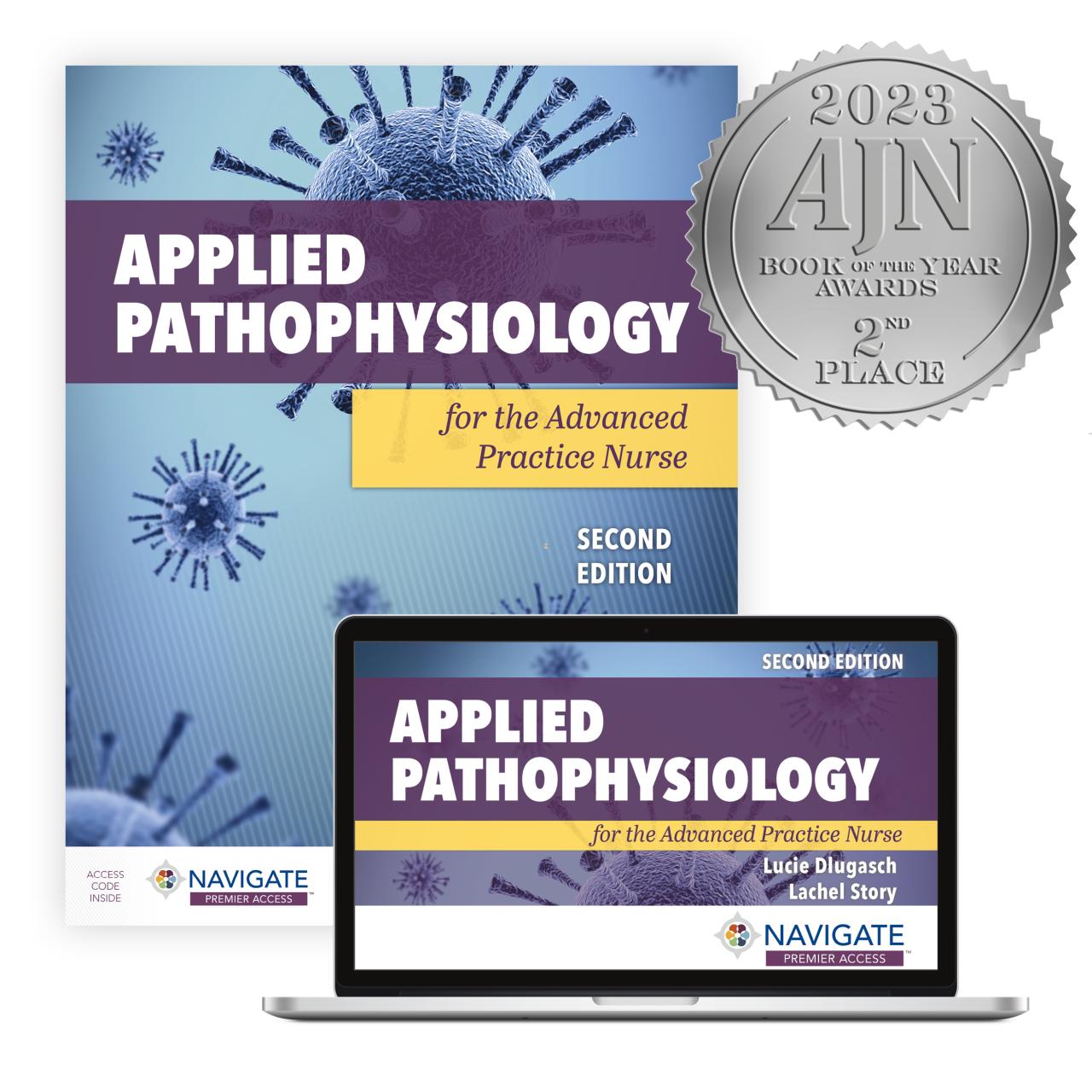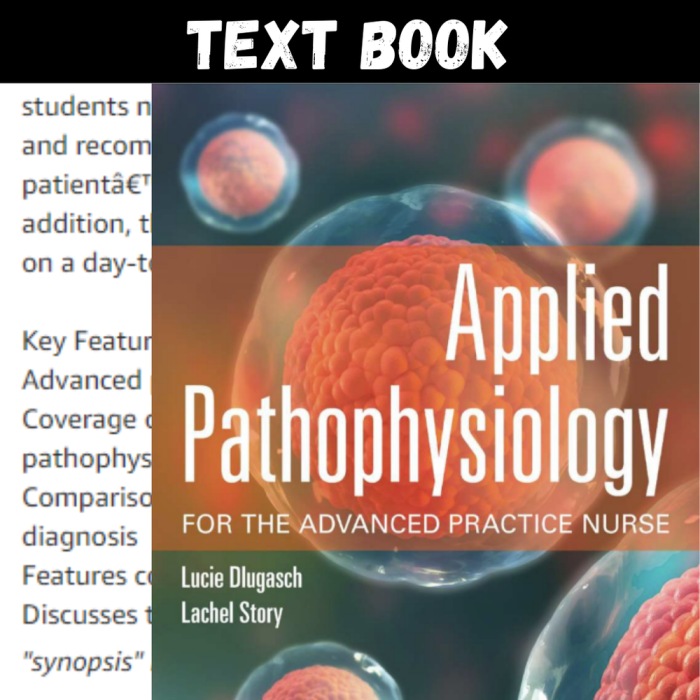Applied pathophysiology for the advanced practice nurse sets the stage for this enthralling narrative, offering readers a glimpse into a story that is rich in detail and brimming with originality from the outset. This comprehensive guide delves into the fundamental principles of pathophysiology, exploring their practical implications in the assessment, diagnosis, and management of patients by advanced practice nurses (APNs).
As healthcare professionals on the front lines of patient care, APNs play a pivotal role in understanding and applying pathophysiology to enhance patient outcomes. This guide serves as an invaluable resource, empowering APNs with the knowledge and skills necessary to navigate the complexities of disease processes and deliver exceptional care.
1. Advanced Practice Nursing and Applied Pathophysiology

Advanced practice nurses (APNs) play a crucial role in understanding and applying pathophysiology in their practice. Pathophysiology, the study of the functional changes associated with disease and injury, provides a foundation for APNs to assess, diagnose, and manage patients effectively.
Importance of Pathophysiology in APN Practice
Pathophysiology empowers APNs to:
- Comprehend the underlying mechanisms of disease processes
- Identify potential complications and predict patient outcomes
- Develop individualized treatment plans based on pathophysiological principles
- Monitor and evaluate treatment effectiveness, adjusting interventions as needed
2. Key Principles of Applied Pathophysiology

Cellular Adaptation
APNs must understand cellular adaptations, such as atrophy, hypertrophy, hyperplasia, and metaplasia, as these changes can indicate disease processes or responses to environmental factors.
Inflammation, Applied pathophysiology for the advanced practice nurse
Inflammation is a complex process involving the recruitment of immune cells and mediators. APNs need to recognize the signs and symptoms of inflammation and understand its role in both acute and chronic diseases.
Tissue Repair
Tissue repair involves the formation of new tissue to replace damaged tissue. APNs must be familiar with the different types of tissue repair and the factors that can affect the healing process.
Disease Processes
APNs must have a comprehensive understanding of common disease processes, including cardiovascular, respiratory, gastrointestinal, and neurological disorders. This knowledge enables them to identify the pathophysiological mechanisms underlying these diseases and develop appropriate interventions.
3. Pathophysiology of Common Conditions
| Condition | Pathophysiology |
|---|---|
| Cardiovascular Disease | – Atherosclerosis: Narrowing of arteries due to plaque buildup
Hypertension Elevated blood pressure due to increased peripheral resistance Heart Failure Inability of the heart to pump blood effectively |
| Respiratory Disease | – Chronic Obstructive Pulmonary Disease (COPD): Airflow limitation due to inflammation and airway remodeling
Asthma Reversible airway narrowing due to inflammation and bronchospasm Pneumonia Infection of the lung tissue |
| Gastrointestinal Disease | – Peptic Ulcer Disease: Erosion of the gastric or duodenal mucosa
Inflammatory Bowel Disease (IBD) Chronic inflammation of the gastrointestinal tract Liver Cirrhosis Scarring of the liver due to chronic liver damage |
| Neurological Disease | – Stroke: Loss of brain function due to interruption of blood flow
Alzheimer’s Disease Progressive neurodegenerative disorder characterized by cognitive decline Parkinson’s Disease Movement disorder due to dopamine deficiency |
4. Impact of Applied Pathophysiology on Patient Care: Applied Pathophysiology For The Advanced Practice Nurse

Applied pathophysiology enables APNs to:
- Provide patient education and counseling based on a sound understanding of disease processes
- Recognize and manage complications associated with disease and treatment
- Collaborate with other healthcare professionals to develop comprehensive care plans
- Evaluate the effectiveness of interventions and make evidence-based decisions
FAQ Insights
What is the role of applied pathophysiology in advanced practice nursing?
Applied pathophysiology provides APNs with a deep understanding of disease processes and their impact on patient health. This knowledge empowers them to make informed clinical decisions, develop effective treatment plans, and improve overall patient outcomes.
How does applied pathophysiology impact patient care?
Applied pathophysiology enables APNs to accurately assess and diagnose patients, predict disease progression, and develop individualized treatment plans. By understanding the underlying pathophysiology of a disease, APNs can tailor their interventions to address the specific needs of each patient, leading to improved outcomes.
What are the ethical considerations related to applied pathophysiology in advanced practice nursing?
APNs must adhere to ethical principles when applying pathophysiology in their practice. This includes maintaining patient confidentiality, obtaining informed consent for procedures, and respecting patient autonomy. Additionally, APNs must be aware of the potential biases and limitations of pathophysiological knowledge and consider the social and cultural factors that may influence patient care.